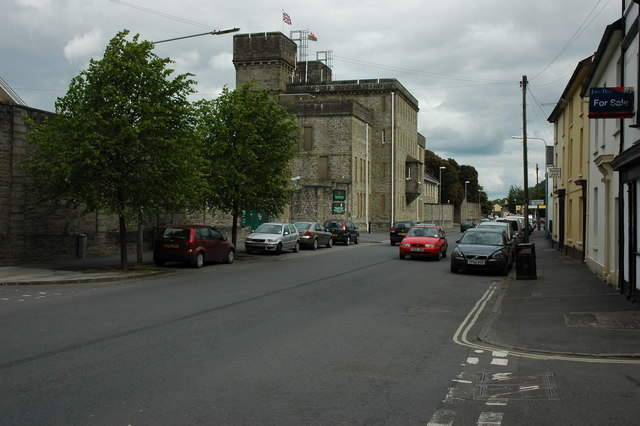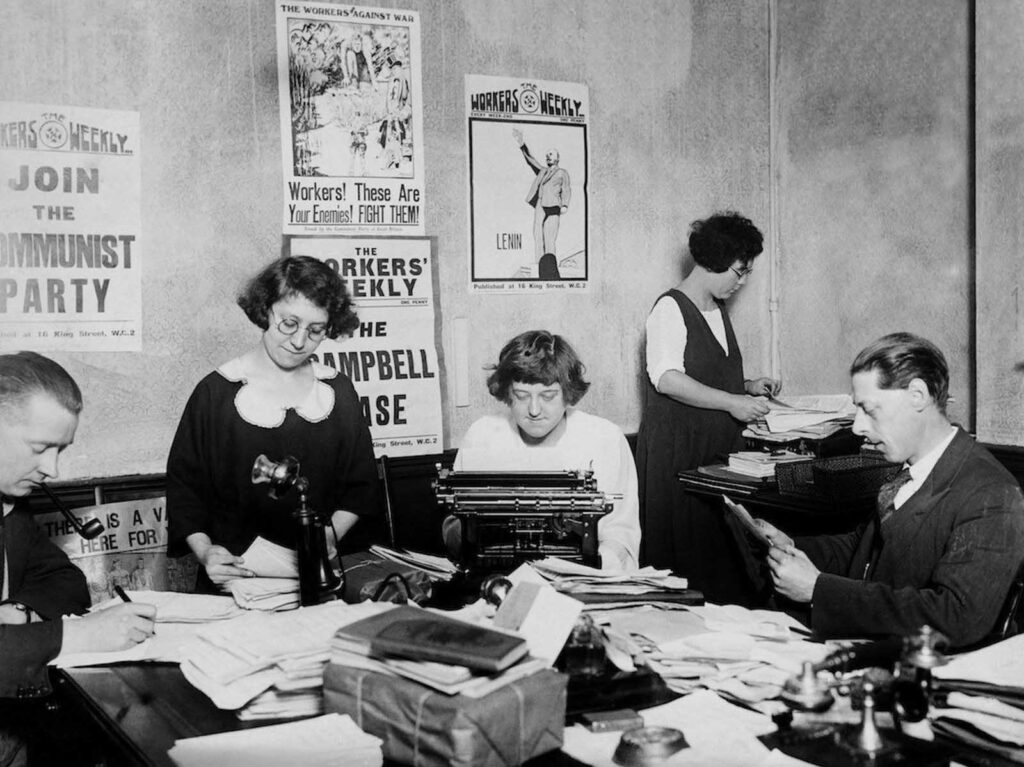Before the new Public Order Act, before the republican protest at the Coronation, before Home Secretary Suella Braverman… On this day in May 1930, the arrest and imprisonment of protestors handing out leaflets to soldiers, and fear of the ‘red menace’.
The background to the chapter one incident in my political conpiracy thriller, The Prime Minister’s Affair. Out in paperback on the 14th of September.
The old county town of Brecon is not somewhere you would expect to find Communists calling for workers to unite and rise in a Russian style revolution. A quieter place now than it was after the First World War when it boasted a working canal and a railway to the coal and iron valleys of South Wales, and yet something of a rural backwater even then. A pretty town of six thousand people, with a cattle market, a cathedral, painted Georgian houses – and a barracks.

It was at the gates of the barracks on the 25th of May 1930 that two unemployed workers from Dowlais presented themselves with the intention of distributing leaflets to the men of the South Wales Borderers. Arthur Eyles, 44, was an unemployed miner, a widower with four young children who lived on £1 12 shillings a week unemployment benefit; John Ryan, a 28-year-old unemployed labourer, married with no children.
Their appeal was for class solidarity with the people of India ‘fighting for bread and national freedom’. If the ‘imperialist’ British government sent the men of South Wales to India they should refuse to shoot heroic workers and peasants campaigning for their freedom. Instead the Soldier-Comrades were to turn their guns on their ‘real enemy – the thieving, robbing, British ruling class’.
Distributing leaflets outside the barracks home of a regiment famed for its part in suppressing colonial risings in India and South Africa was by any estimation a foolhardy thing to do. But the Communist Party was struggling to break down the barrier between ‘workers in uniform’ and workers in factories and pits. Party members had tried in other garrison towns and had been arrested and fined for ‘insulting behaviour’ – the Dowlais men were to meet a much a harsher fate.
The police were waiting and both men were arrested and charged under the 1797 Incitement to Mutiny Act with ‘maliciously endeavouring to seduce soldiers from their duty’.

British Communist Party headquarters in London 1928
The trial judge, Mr Justice Roche, described the information in the men’s leaflet as ‘extraordinarily foolish’. ‘The people of India were not ground down and oppressed’, he told the court, ‘but were protected against the periodic invasions they had experienced before, by English rule.’ So confident was he in his opinion he gave permission for the leaflet to be read in court, a decision that ensured every seditious word was printed in the Brecon County Times. Before passing sentence, Mr Justice Roche addressed the two men thus: ‘Let everybody understand’, he said, ‘I am not punishing you for your opinions, but I am punishing you for the wickedness of what you did in trying to seduce young men of impressionable age from their duty and their allegiance’. He sentenced Eyles to 12 months hard labour, and Ryan to eight. Hard to credit now but both men were sent to prison for distributing a political leaflet to soldiers the court judged too young and impressionable to form a sensible opinion, even though they were old enough to die for their country.
There’s more on Ramsay MacDonald, fear of the ‘Red Menace’ and an attempt to bring down a Labour Government here.
